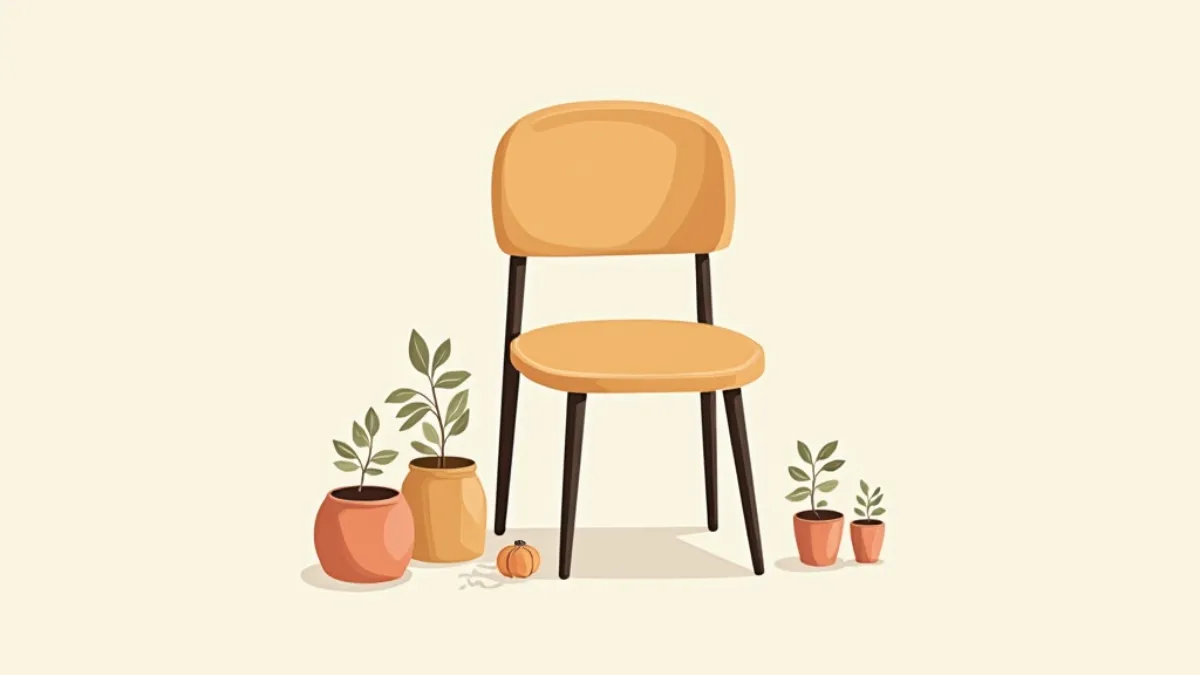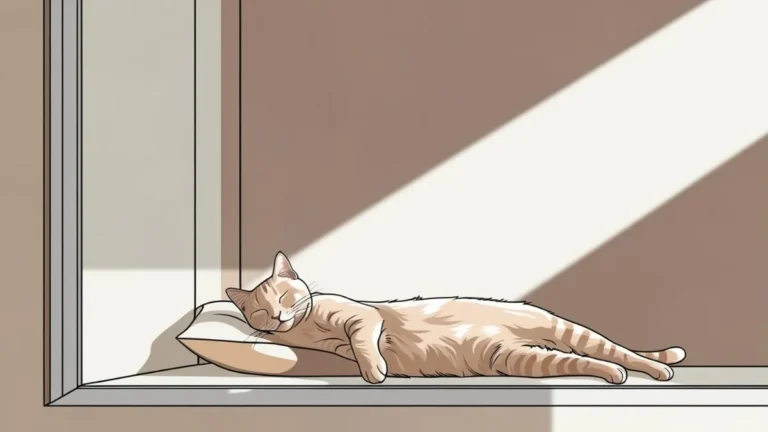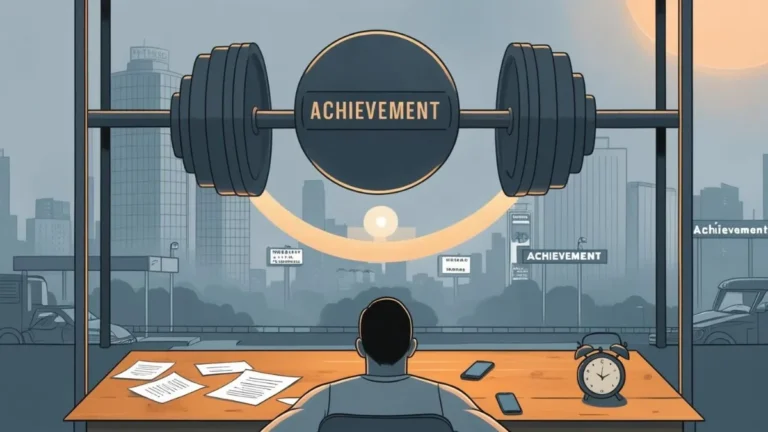Ever noticed how we tend to hold on to things we don’t really need? It’s like the mole from an ancient Chinese story. When thirsty, the mole drinks just enough water to fill its belly, no more, no less. Simple, right? But we humans? We overdo it. We pile up material stuff like it’s a competition. And here’s the twist: this endless consumption isn’t making us any happier. That’s where minimalism comes in. It’s the ultimate life hack, flipping the script on “more is better” and showing us that true wealth lies in less. Let’s unpack this.
Minimalism Misunderstood
Minimalism isn’t about deprivation or living in an empty, stark-white apartment. It’s about clarity, about focusing on what really matters. But let’s clear up some common misconceptions:
- Extreme Aestheticism: Think of Prince Siddhartha—before he became the Buddha. He ate one grain of rice a day, punishing his body in the pursuit of enlightenment. Minimalistic? Sure. Sustainable? Not at all. Turns out, starving yourself isn’t the key to happiness. Balance is. Balance lies in having just enough to thrive, not more, not less. Siddhartha’s journey teaches us that minimalism without sustainability becomes self-destructive.
- Rich People’s Minimalism: Ever seen those minimalist Instagram photos with sleek furniture in million-dollar apartments? Yeah, that’s not it. It’s still consumerism, just with a fancier facade. Minimalism isn’t about flaunting expensive “fewer things”; it’s about not letting stuff own you. When “fewer” comes with a hefty price tag, it misses the essence of simplicity—freedom from material status symbols.
The True Value of Minimalism
Minimalism is freedom. It’s about letting go—not just of physical clutter, but also of the mental weight it brings. Here’s why it works:
- Freedom from Possessions: Remember Shu Yu, the hermit? When Emperor Yao offered him the throne, he declined, choosing simplicity over power. He knew that more stuff equals more stress. Owning less means worrying less. Shu Yu’s decision to refuse an empire wasn’t just an act of humility; it was a profound statement about what truly matters.
- Less to Lose, Less to Fear: Laozi nailed it in the Dao De Jing: “If you overvalue possessions, people will begin to steal.” Wealth often leads to fear—fear of loss, theft, or envy. But when you own less, you sleep easier. No gated communities or security cameras required. The less you have, the more peace you invite into your life. Possessions often come with invisible chains, tethering us to anxiety and endless responsibility.
- Time and Energy: Henry David Thoreau’s cabin near Walden Pond wasn’t just a rustic retreat. It was a statement. By living simply, he freed up time to connect with nature, reflect, and grow. Minimalism isn’t about less stuff; it’s about more life. With fewer distractions, Thoreau found clarity and purpose. Imagine how much time and energy we could reclaim by simplifying our lives—time that could be spent on relationships, passions, or simply enjoying the moment.
- Contentment: Epicurus knew what was up. He said, “Do not spoil what you have by desiring what you have not.” Minimalism is about appreciating what you already have. It’s a mindset shift—from scarcity to abundance. When you’re not constantly chasing the next shiny thing, you discover the richness of what’s already in front of you.
Minimalist Philosophies in Action
Minimalism isn’t a one-size-fits-all. It’s deeply personal, and different thinkers have approached it in unique ways:
- Diogenes and Radical Detachment: Diogenes lived in a barrel. His only possession? A cup—which he ditched after seeing a kid drink with his hands. Extreme? Maybe. But his detachment from stuff and opinions made him untouchable. No one could control him because he wanted nothing. Diogenes’ story reminds us that freedom from material possessions often translates to emotional and psychological independence. When you need nothing, you fear nothing.
- Epicurus’ Hierarchy of Needs: Epicurus broke it down for us:
- Focus on natural and necessary desires: food, shelter, human connection.
- Avoid vain and empty desires: power, wealth, fame. These are endless pits—unsatisfying and unnecessary.
- Cherish what you have. As he said, “What you now have was once among the things you only hoped for.” This gratitude-centric approach encourages us to find joy in simplicity. Epicurus’ wisdom offers a guidepost: fulfillment isn’t about chasing the infinite but embracing the enough.
- Thoreau’s Simplicity: Thoreau’s decision to live in a simple cabin wasn’t an escape; it was a pursuit of depth. By stripping away excess, he discovered life’s essence. Thoreau’s minimalism wasn’t just about living cheaply; it was about living richly in spirit. His writings inspire us to seek fulfillment in experiences rather than possessions.
Redefining Wealth
True wealth isn’t about bank balances or shiny toys. It’s about freedom, peace, and living authentically. Here’s how you can start:
- Declutter: Not just your closet, but your mind too. Let go of what doesn’t serve you. Emotional baggage can be just as heavy as physical clutter.
- Focus on Experiences: Memories last longer than gadgets. Invest in moments, not things. Travel, create, connect—these are the things that truly enrich our lives.
- Find Your Enough: Know when to stop. Contentment is a superpower. Define what “enough” looks like for you and resist the pull of endless accumulation.
- Embrace Gratitude: Shift your focus from what’s missing to what’s present. Gratitude transforms scarcity into abundance.
Final Words
So, what’s holding you back? Maybe it’s time to ditch the clutter and embrace the beauty of less. Start small. Donate those jeans you never wear. Cancel that subscription you forgot about. Notice the lightness that follows. Minimalism isn’t about sacrifice; it’s about making room for what truly matters. Ready to try it?
Imagine walking into your home and feeling nothing but peace—no piles of stuff demanding your attention, no chaos stealing your energy. Minimalism is a journey, not a destination. Begin with one small step today.
Remember, simplicity isn’t a hardship. It’s a pastime, a joy. Letting go is the richest thing you can do. As Thoreau said, “To maintain one’s self on this earth is not a hardship, but a pastime.” And really, isn’t that the dream? When we let go of the excess, we make room for what truly matters. That’s the essence of true wealth.



